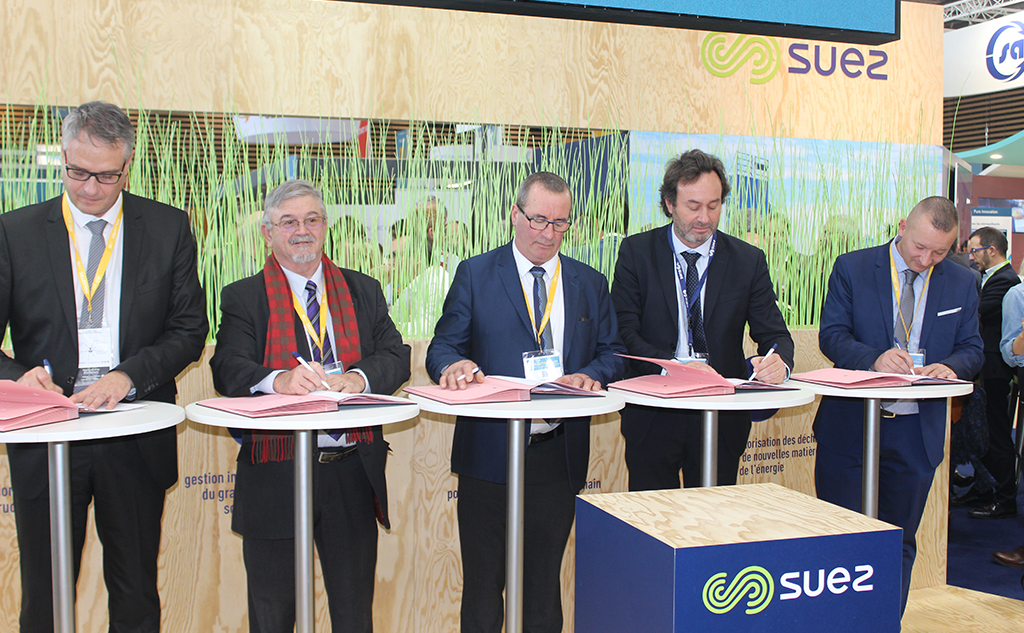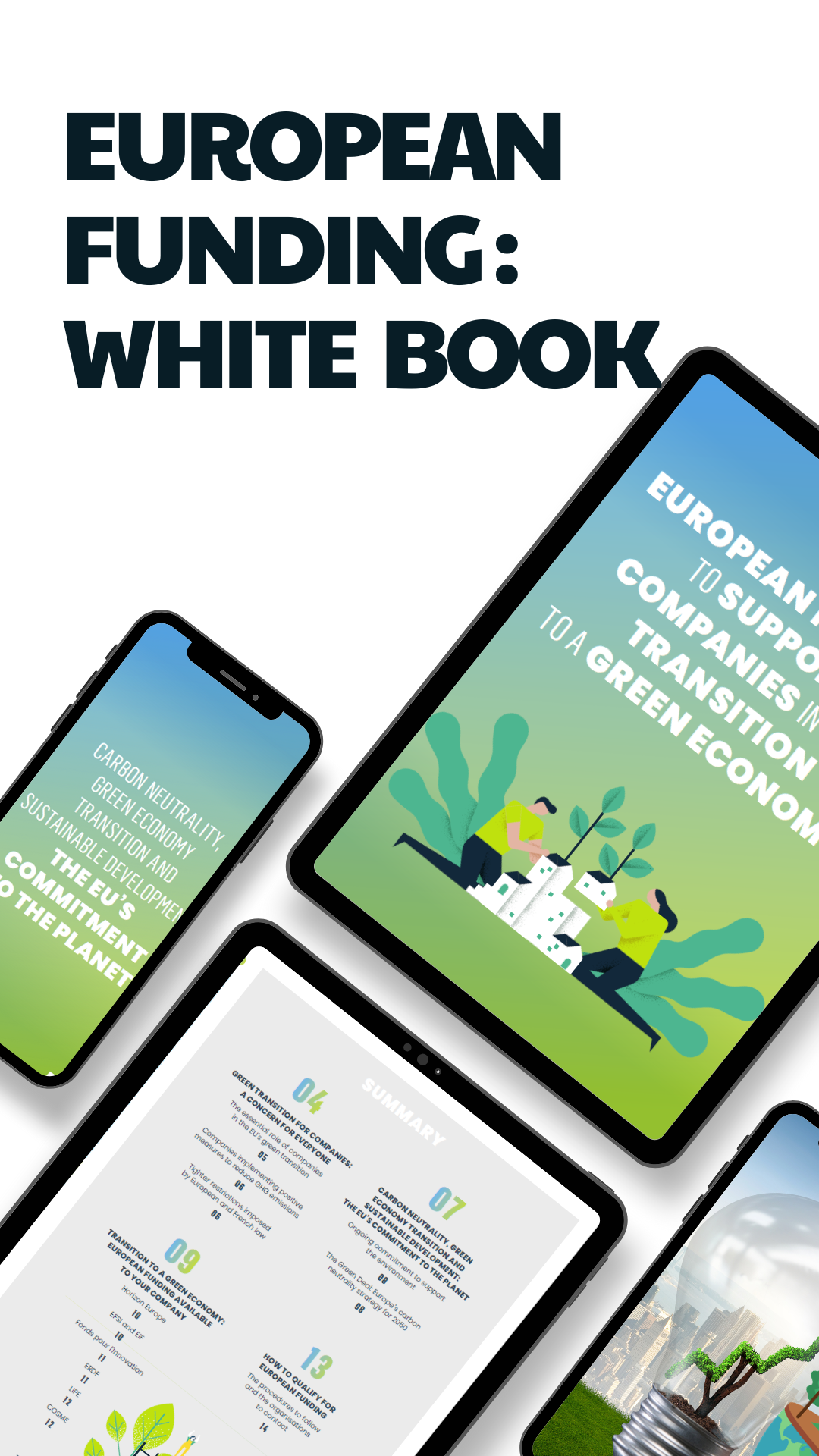Major partners working together for the agriculture of tomorrow
The 2018 edition of Pollutec last November was marked by many highlights. One was the signing of the ambitious API agreement for Peri-urban Agriculture. We look back on this major event for the agriculture of tomorrow.
Tuesday 28 November, around 11 am, there began to be a real buzz around the Suez stand. The French water and waste management group was certainly thinking big with its uniquely distinct entirely wood stand. This is where the five partners and API agreement signatories gathered together: Cyril Courjaret for Suez Auvergne – Rhône-Alpes, Gérard Bazin for the Chambre d’Agriculture du Rhône, Antoine Duperray of the Syndicat Mixte Hydraulique Agricole du Rhône, Philippe Puthod for Eiffage Centre-Est and Ferenc Szilagyi of Blue Line Logistics. One by one, they reiterated their ambition in regards to agriculture, under the watchful eye of Bruno Charles, vice-president of the Métropole de Lyon with responsibility for sustainable development and agriculture. The API agreement for Peri-urban Agriculture objectives are threefold. API is first and foremost an agricultural component that focuses on the development of proximity distribution. It is also, ultimately, the emergence of a connected and technological agriculture 2.0. Lastly, it is an agricultural sovereignty to be regained, in a territory that today has 1.3 million inhabitants for every 10,000 ha of agricultural land.
A renewed ambition for peri-urban agriculture
The signing of this API agreement represents a significant commitment for the partner signatories. To illustrate this, Bruno Charles pointed out some meaningful figures: “Today, 97% of foodstuffs consumed within a radius of 50 km around Lyon are imported. At the same time, 98% of foodstuffs produced in this same area are exported. This shows that there is a huge amount of relocation work to be carried out”. This is especially the case with climate change already disrupting the balance of the Métropole de Lyon. For example, to the east of the city, the level of the water table has fallen by 3m in a few years and today the water is no longer drinkable. Moving from theory to practice, all the signatories then participated in a “Resource and material management” workshop to discuss innovative and environmentally friendly solutions. The future will surely depend on the development of platforms such as ASTEE, which brings together public water and environmental services, or ValorHiz, an expert in the management of soil reconstruction projects in post-industrial sectors on cities’ peripheries.




